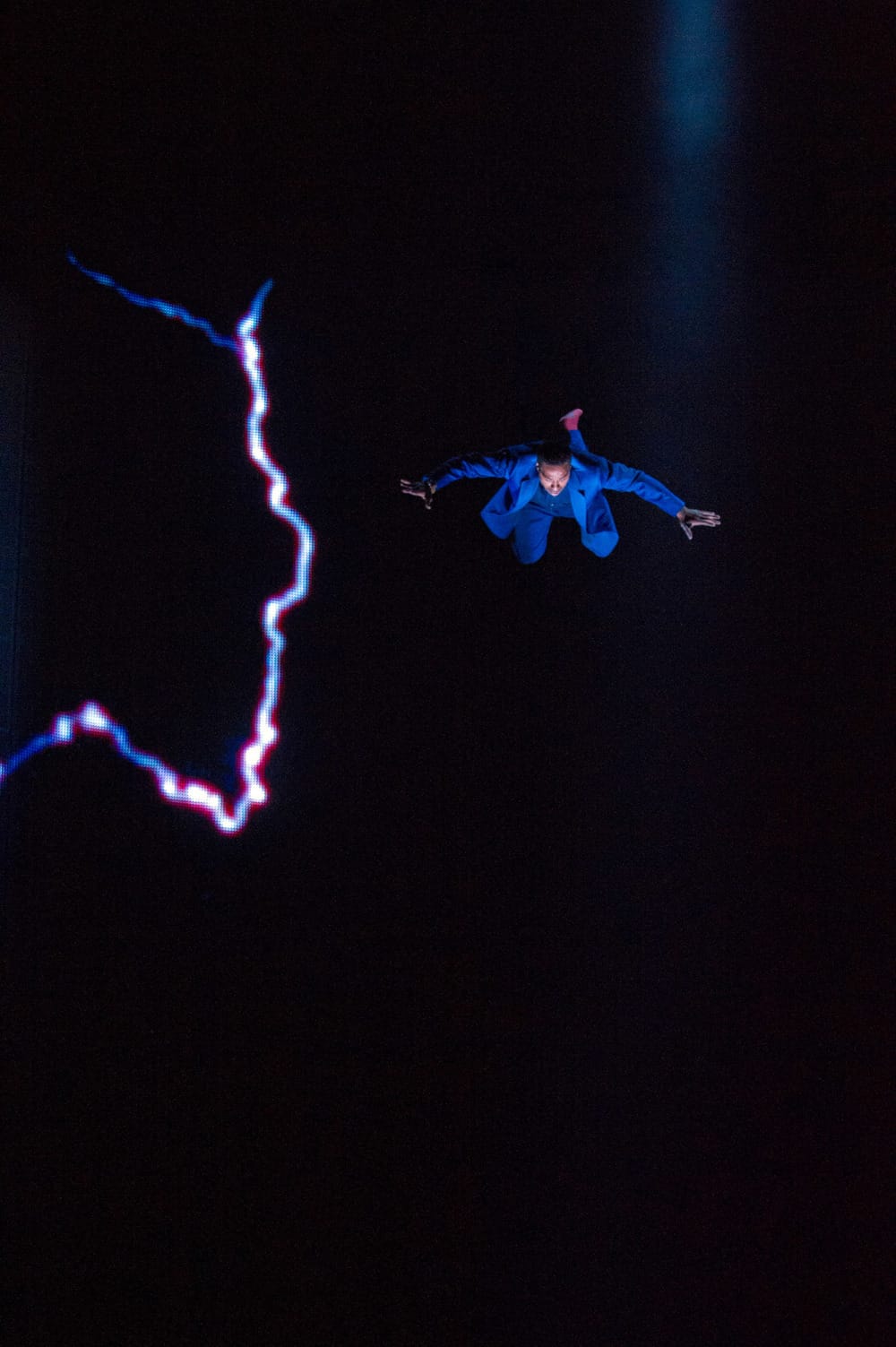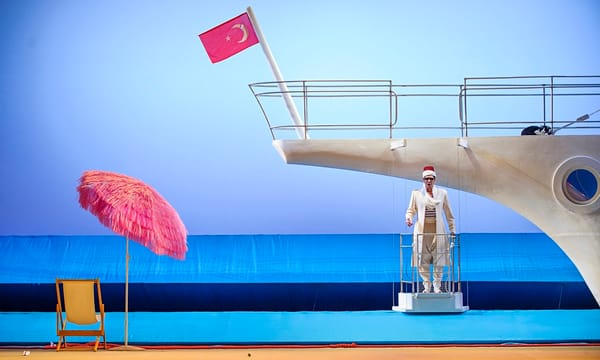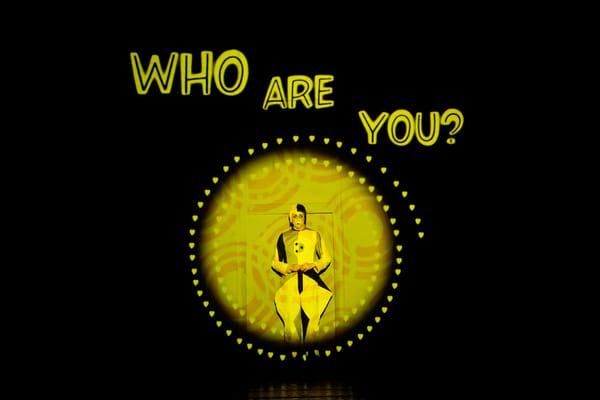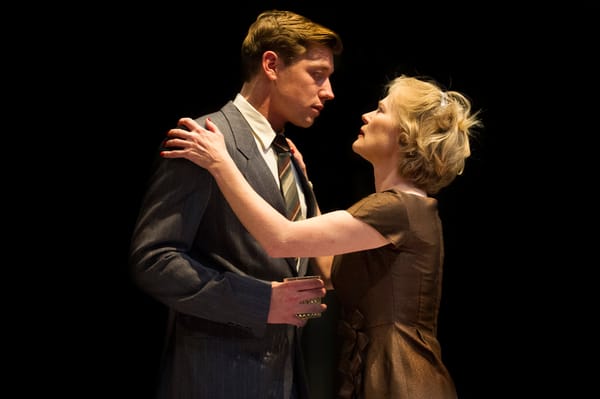The Extraordinary Journey of Everyman
Rufus Norris ushers in his tenure at the National Theatre with this updated morality play, featuring a powerhouse performance by Chiwetel Ejiofor

For British actor Chiwetel Ejiofor, no role is too large. Coming to national prominence after his showstopping turn in Othello in 2008, for which he won the Olivier Award for Best Actor, he returns to the UK this year with a spade of awards and nominations under his belt thanks to his stirring performance as Solomon Northup in the 2013 Steve McQueen film 12 Years A Slave, which nabbed the top spot of numerous critics’ end of year lists. However, if any role is to give him pause it would be his latest one: Ejiofor is the titular character in the National Theatre’s production of Everyman, taking on the mantle of humanity. Rufus Norris’ first directorial effort as head of the National Theatre, Everyman is a mixed bag, with strong performances and excellent physicality coming up against a lackluster script, whose elements jar in all the wrong places.
A 15th Century morality play, Everyman follows the proverbial journey of the ‘Everyman’, a paradigm of humanity, who undertakes a quest for Christian redemption. Following his death, he is judged by God, his deeds tallied up and weighed; he tries to find people to accompany him on this journey, turning first to an ensemble representing fellowship, then his kindred, and finally to material goods, before facing that he must go it alone. Ultimately, he looks inside himself, finding an inner knowledge of mankind’s innate goodness that will accompany him towards judgement. Paying penance in front of God, Everyman begs for forgiveness, and is finally absolved.
Of course, Norris felt that bringing along only one big name was not enough; this is his first production after all, and there’s no better impression than a play buckling under the weight of household names. Therefore, he has invited Carol Ann Duffy, Poet Laureate, to transcribe the script of Everyman, updating its vernacular from Old English to modern slang, and thereby – theoretically – making it more accessible to today’s audience. Maybe Norris felt that he should appeal to the broadest range of people possible, or perhaps he thought that a couple of swear words here and there would be better than innumerable instances of the word ‘thy’, but really he does the play, and the public, a disservice. Duffy’s adaptation is adequate, but there are moments where the colloquial language comes against the grand themes, stuttering and grinding like a spanner in the works. Having Everyman accuse his sister of being a bitch, or calling Death a cunt, simply detracts from the grandiose themes, bringing us down to earth with a dull thud.
Furthermore, Duffy takes away much of the religious aspect; a gamble that doesn’t quite pay off, it means that the heavy subject matter instead becomes a wry indictment of modern consumerism (I mean, I hate capitalism as much as the next bourgeois culture vulture, but the same thing has been done – and better – by numerous playwrights). However, some aspects of modernisation do work: Duffy replaces the theme of mankind abusing each other, and focusses on how we damage the environment. Whirling montages of natural disasters and floods, roll through the auditorium like a hurricane, provided by video designer Tal Rosner. It serves as the dramatic apex of a production with a heavy focus on clever staging; from the very beginning, where Ejiofor is slowly lowered down on a rope, through the scenes where he confronts his own materialism in a subconscious department store, and up to this gripping conclusion, Ian MacNeil's setting rarely puts a foot wrong. Javier De Frutos’ work as choreographer and movement director should also be applauded, providing the ensemble cast with a near-aggressive sense of physicality.
But the real draw, the one that will bring the crowds in and ensure that the production has a sell-out run, is the presence of Ejiofor. And fair enough. Ejiofor is nothing short of magnificent. With sweat dripping off his brow, he cowers in the face of death, delivering his lines with a great might. With a gravitas that only those most brilliant actors can possess, he brings the entire audience to a standstill, as we bath in his magnificent oratory. He is not encumbered by the awkwardness of the language, managing to transcend even the most awkward turns of phrase; that being said, it makes me sad that we aren’t seeing him deliver the original text. We’ve seen this man deliver one of the finest Shakespearean performances of the modern age – imagine what he could have done with the unaltered play.
The remainder of the cast are just as excellent, although, naturally, none overshadow the main attraction. Kate Duchêne’s God is a world-weary cleaning lady, sweeping up after the mess her humanity has created, tired at the long years the human race has put morality in the corner; Dermot Crowley imbues his Death with a scottish brogue, replacing the traditional black cloak and scythe for protective overalls and gloves, resembling more a cast member of CSI than the bringer of doom.
Ultimately, Everyman is an extremely fitting opener to Richard Norris’ tenure at the helm of the country’s most famous theatre. With its explosive set design, energetic movement, and powerhouse of a central performance from Chiwetel Ejiofor, Everyman is an engaging piece, and bodes well for Norris’ run. Despite a script that doesn’t live up to what could have been, I am certain that Everyman, with its lively, dazzling take on what it means to be human, will prove a triumph
Everyman is on at the National Theatre until 30th August. Tickets from £15, available online. Everyman will be broadcast in cinemas across the UK on the 16th July as part of National Theatre Live. Check online for details.









